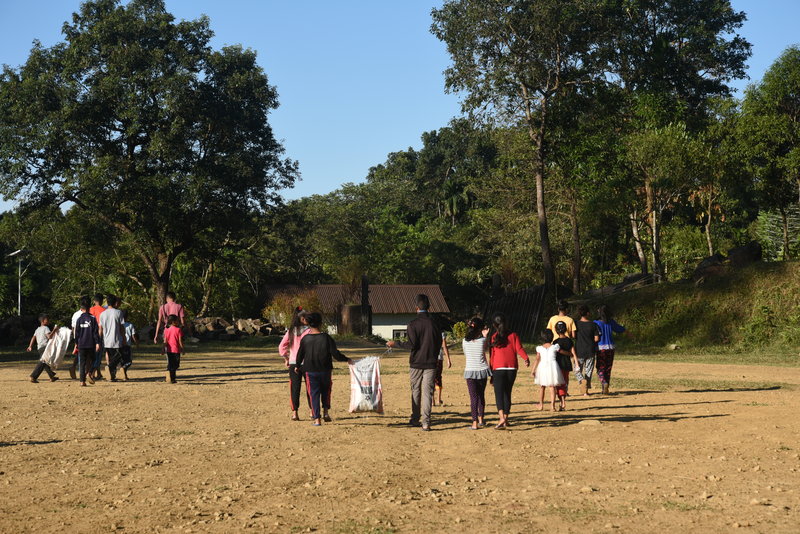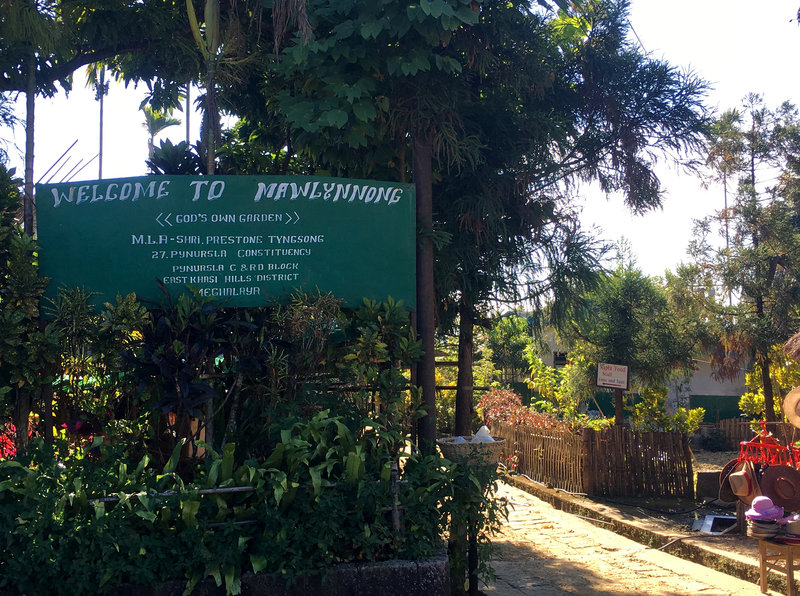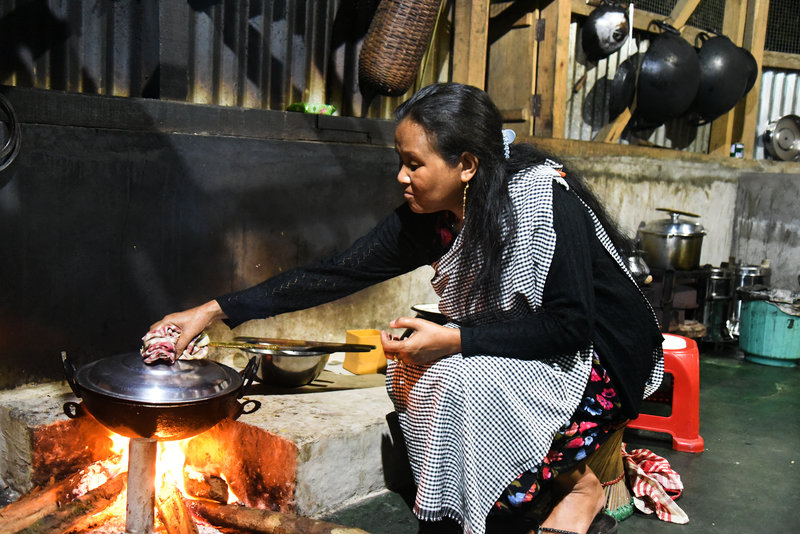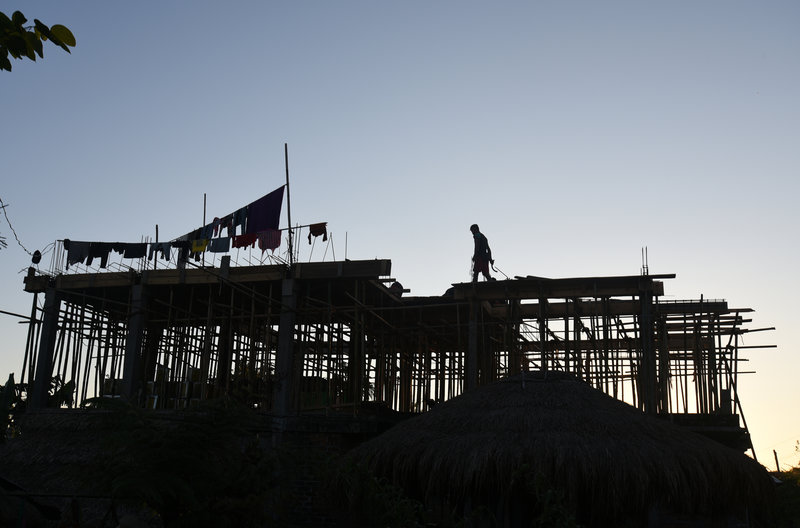It bills itself as the “God’s Own Garden,” and this tribal village tucked in India’s remote northeast is unlike any other in the country.
Mawlynnong is free from what plagues so much of rural and urban India: litter, burning garbage and open defecation, the latter punishable by fine.
Reaching this mini-Shangri-La is a commitment, as we climb evergreen-studded mountain roads, peer into emerald valleys, and plateau into lush vegetation that overlooks the border with Bangladesh to the south.
Its leafy lanes fan out across the village lined with bamboo and wooden houses, some crowned with thatch roofs. But Mawlynnong isn’t just quaint. This village, population 500, is picture-perfect clean.
The inhabitants from the dominant Khasi tribe in the state of Meghalaya grow betel nut and, appropriately enough, a plant called “broomstick.” No village green or walkway is littered for long — by 7 a.m. a team of women, each paid $3 a day, are out sweeping and spiffing up the place.
The stream used for washing is crystal clear. Butterfly-filled gardens adorn almost every one of the 95 homes. Flowers line the lanes, and you can’t walk 50 feet without seeing a wicker litter basket — the symbol of what is now known as the “Cleanest Village in India.”

Julie McCarthy/NPR
Indian tourists descend like scientists who have discovered another species.
Uttam Dawn and his family traveled over 20 hours from Kolkata to reach this little Eden. “It’s beautiful,” he repeats it for emphasis. “We’ve never seen a place this clean.”
He says the sense of civic responsibility evident in the village is missing where he’s from.
A place this spit-polished is a novelty in India. Cities and villages are often unsightly and garbage-strewn. Villagers here are amused that they’ve become an attraction, put on the map because they clean.
And the secret to Mawlynnong’s sparkle? A tribal tradition that equates cleanliness with a beauty all its own. Resident Badapbiang Khongtheim says fellow villagers don’t look at how grand someone’s house is but how tidy it is kept.
“Cleanliness has more value than material wealth,” she says. “It’s what people see, it’s what they talk about, it’s what they exchange compliments over.”
“From the time we were young,” she says this village — which is devoutly Christian — was taught “that God is clean.”

Julie McCarthy/NPR
Tour guide Aisuk Lin says there is no escaping it — “it’s in our genes.”
“We love gardening. We love cleaning, especially to make the pots, the utensils, — shining!”
That Khasi women take pride in their kitchens is plain from seeing Hosana Mawroh’s. This 47-year-old mother of six opened a small restaurant in the village where she caters to the army of visitors who come to marvel at Mawlynnong. Even as the pots boil away preparing food for 120 customers a day, her kitchen still gleams.
Mawroh says she’s uncomfortable if things are out of order. “There’s not a morning I don’t feel like getting up, grabbing my broom, and sweeping my home and my compound,” she says. “My heart doesn’t allow me to be unclean.”
But make no mistake, Mawroh says — all this beautifying is hard work — “from the time we wake … until we sleep.”
For those less enthused by dawn-to-dusk upkeep, there’s always Morgan the town crier.

Furkan Latif Khan/NPR
Every Friday night he reminds residents of their duty, walking around the village and bellowing outside people’s homes.
“You’d better show up in the parking lot at 6:30 Saturday morning for the social cleanup!” he yells. It’s become a weekly ritual now that the stream of visitors is rising, and creating even more trash.

Furkan Latif Khan/NPR
Anita Balu, 38, journeyed with her family from the southern Indian state of Tamil Nadu, and said, “We’ve spoiled nature [but] they’ve maintained the ambiance beautifully.”
Of the thousands of tourists beating a path to the village door, Hosana Mawroh says it’s not enough for them to simply admire what villagers do to maintain cleanliness. She said, “They should take this as an example and replicate it,” back in their own villages and towns.
One recent Saturday, the community cleanup drew mostly children, who ordered each other to pick up wrappers and litter. Bawan Buhdor is just 11, but the significance of civic duty is not lost on him. It’s important, he said, “because if we clean the village, there [are] no germs, diseases, no pollution also.”
The village reports no cases of malaria or dengue, diseases that afflict much of India. Sitting at 5,000 feet altitude helps defeat mosquito-borne diseases.
But Mawlynnong also has a rigorous recycling program, nonexistent in most of India.
The village reports no cases of malaria or dengue, diseases that afflict much of India. Sitting at 5,000 feet altitude helps defeat mosquito-borne diseases.
But Mawlynnong also has a rigorous recycling program, nonexistent in most of India.
And fame has brought rewards. Charming home stays have sprouted up. Stalls sell local crafts. The village headman says thanks to the influx of tourists — incomes are up 60 percent. Mawroh says as a result, she can now afford to buy her family better food and better clothing.
None of it would be possible without Mawlynnong’s strong social cohesion and the humble act of cleaning.
Source: NPR